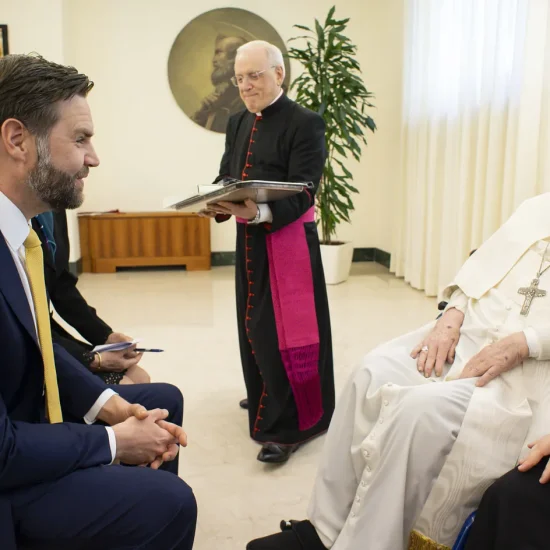
As this year’s Pentecost celebration approaches for congregations, the parallels feel stronger than normal to that initial moment when the Holy Spirit was poured out on Jesus’s disciples. This year the Spirit arrives as a yearlong pandemic hopefully draws towards an end. But emerging from the pandemic can be even more complicated and controversial for churches than their first responses to it.
Pentecost is about new beginnings. Following Jesus’s ascension into heaven, the Book of Acts describes how his followers had gathered in Jerusalem for a festival celebration, as they did every year. The depiction is one of life returning to “normal” after Jesus’s departure and also one of anticipation about what has yet to arrive. The disciples knew one chapter had ended and they expected another one to begin, but for the moment, they returned to their usual routines.
“All of us know when the pandemic started because it affected all of our lives suddenly and with a furry,” said Rev. Trevor Dancer, a United Methodist pastor in Jefferson City, Missouri. “The end comes less clean cut and significantly messier. This Pentecost, we invite the spirit to fall fresh upon us, to renew us, and to give us a heart of compassion for one another. For while some of us celebrate ‘the end,’ others still have a long way to go before they can feel the same.”

(Jacek Pobłocki/Unsplash)
Indeed, every sign of progress also brings added complications. New guidance from the CDC relaxing mask mandates and the lifting of restrictions by state and local governments is met by consternation and confusion among church leaders trying to follow the advice of experts while balancing the norms and needs of their faith communities. The danger is that all the debates, and the very real stress called by them, can cause us to miss the potential of Pentecost, especially the way this year’s celebration of the church’s birth can serve as an opportunity for renewal after all the trials our communities have been through.
“I feel like we need a revival, a fresh wind and fire, as a reminder of the fact that God has equipped us to emerge from this time, just as God equipped those first disciples who lived through the disruption of the crucifixion and the resurrection,” said Rev. Terri Hord Owens, general minister and president of the Christian Church (Disciples of Christ). “They emerged full of hope and praise. We, too, can hear God speak to us and provide us with the strength, the fortitude, the vigor, and the excitement that we will need as we move forward as a new church in a new world.”
Such ideas push back against the fatalism that is too often present in our culture and our churches. We hear that past is prologue, with our future destinies already determined. There is despair at the lack of change and we can find ourselves overwhelmed by the idea that things will never be different. There is no doubt that inertia and resistance are powerful forces, protecting what has been and those who benefit from the status quo.
Still, falling into such traps become a form of tunnel vision where we cannot see what is different, what is new, and what is emerging. When all we notice is death, we render ourselves incapable of experiencing resurrection. Once committed to a stale world of sameness, we become oblivious to the Spirit’s fire sent by the God who is about to do a new thing.
The trick is seeing the full picture — though still full of ambiguity — without losing faith in the One who animates it all. Rev. Michael Livingston, interim senior minister at The Riverside Church in New York, captures this well as it relates to Pentecost and the pandemic:
“We are encouraged by the decreasing numbers of infections and the steadily growing number of people getting vaccinated. It gives us great hope that the CDC is confident enough in our progress to begin to relax some guidelines. Still, continuing vaccine resistance of many is disheartening and caution is still needed,” he said. “Pentecost offers fresh hope for new beginnings, so appropriate in this moment in time. It offers us delight in growing closer to returning to the joy of seeing one another in person in our sacred spaces. We have also been given a gift to integrate the rich learnings of our experience in being a virtual church into our vibrant worship.”
In whatever way you plan to observe and worship this Pentecost, please remember the central claim of the biblical passage: God shows up. In unexpected places and surprising ways, the Spirit arrives. It comes not to reassure us about where we have been but to give us confidence that wherever we are going, God is still with us. Moreover, the Spirit’s work is one of greater connection and unity, as it brings together those who previously were incapable of understanding each other.
Perhaps after having endured the trials related to COVID-19 and the divisions they created, it is that promise of new relationship and connection that I am most excited about this Pentecost.
Beau Underwood is senior editor & VP for external affairs for Word&Way.






